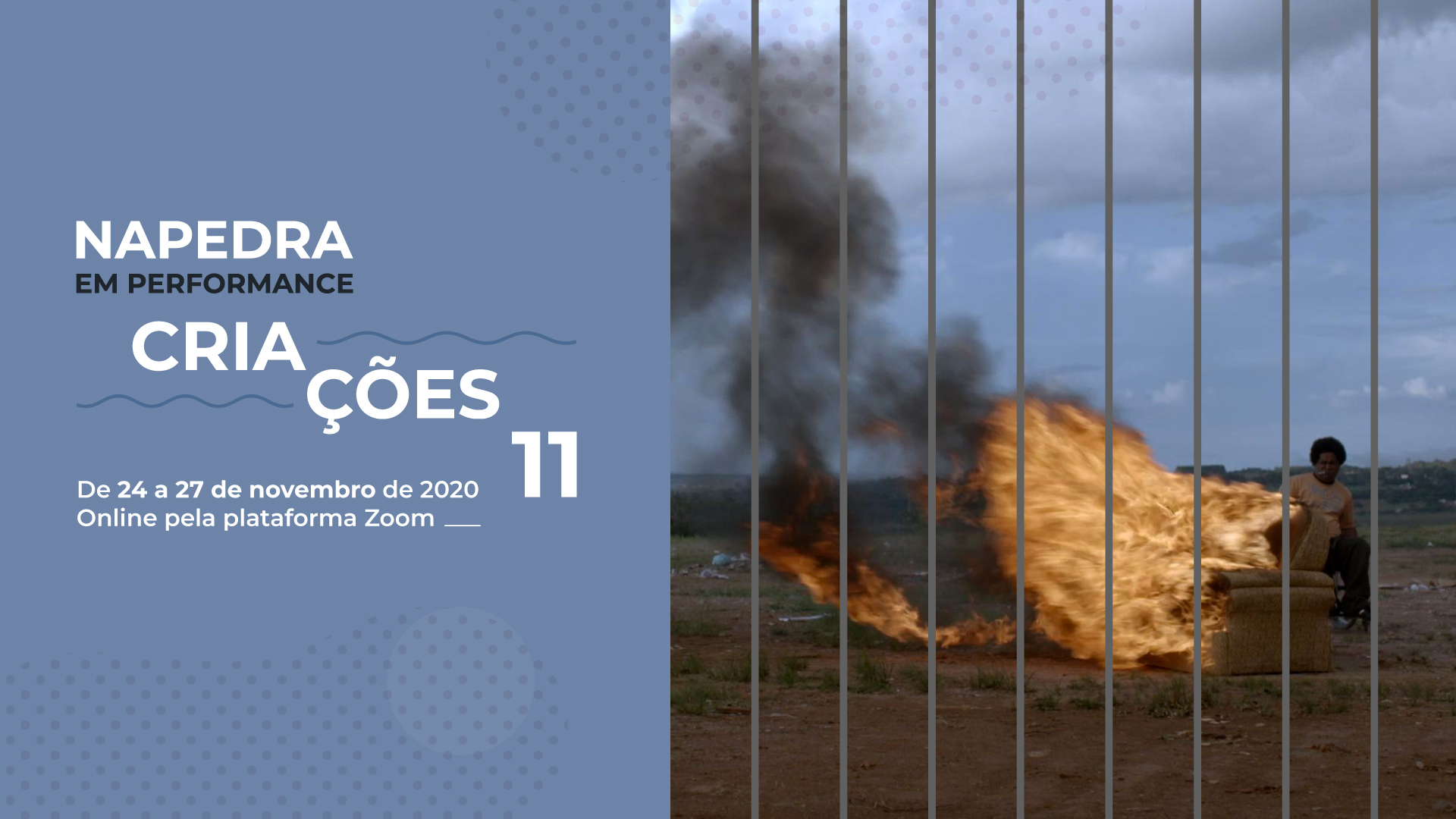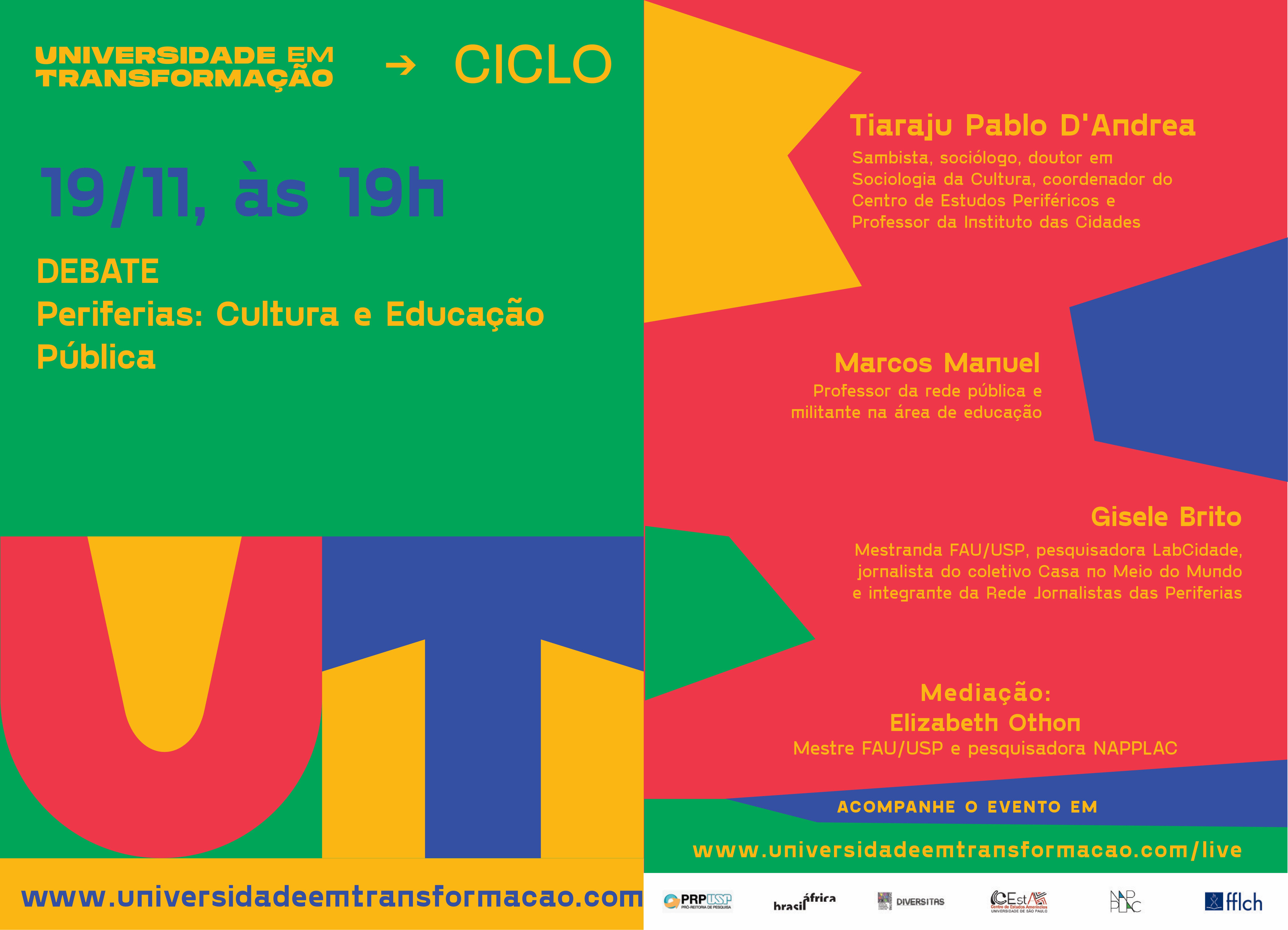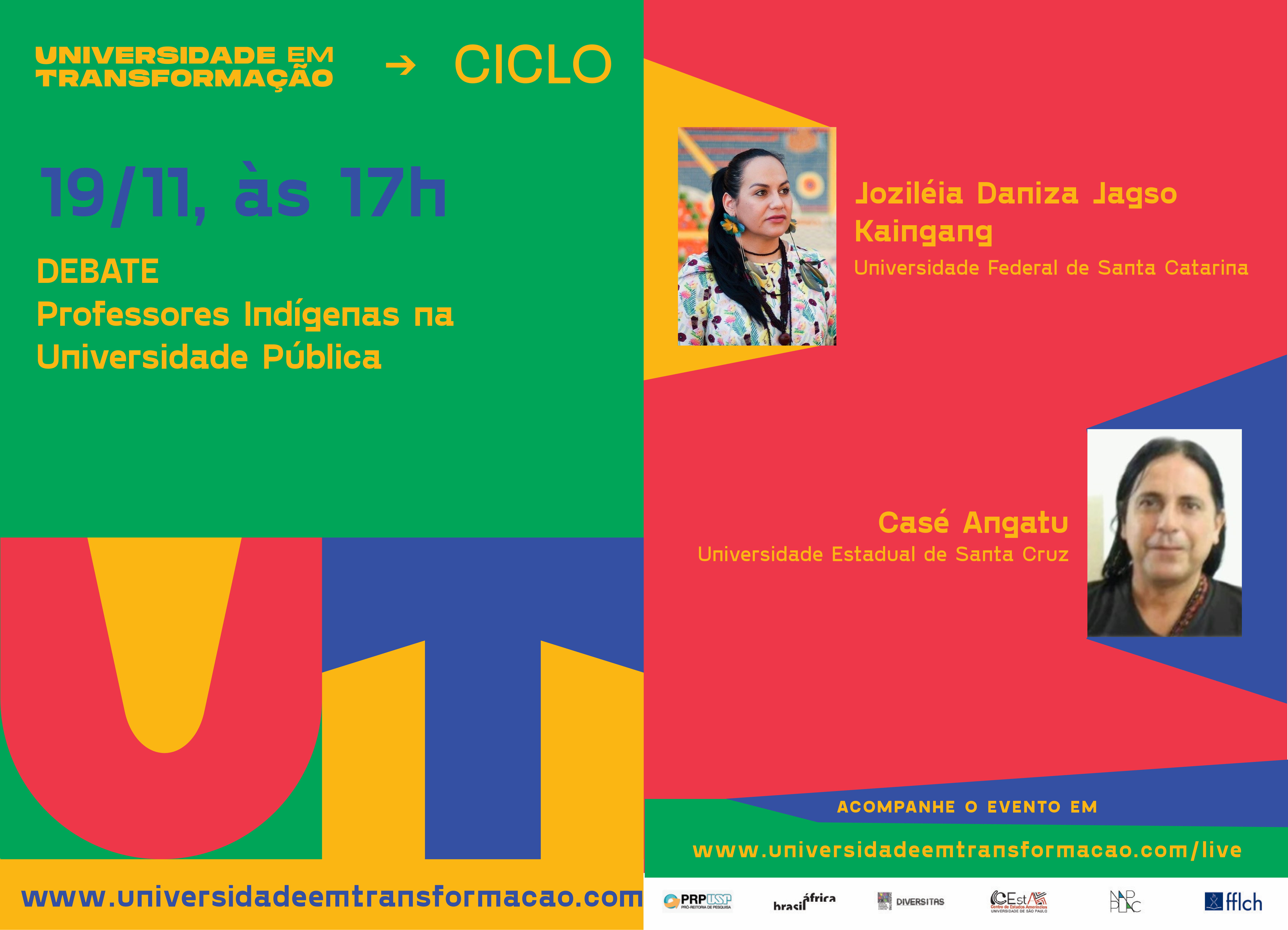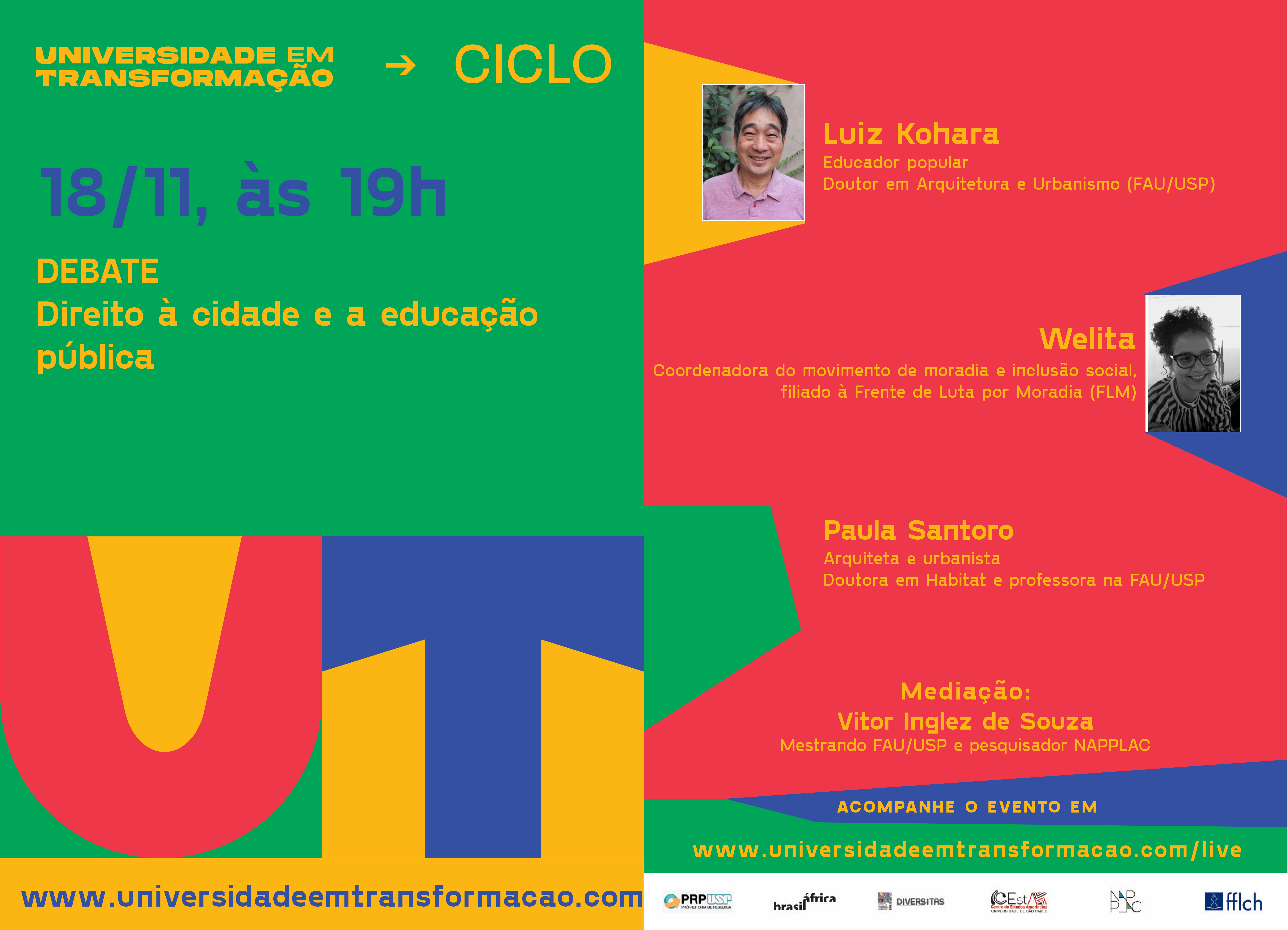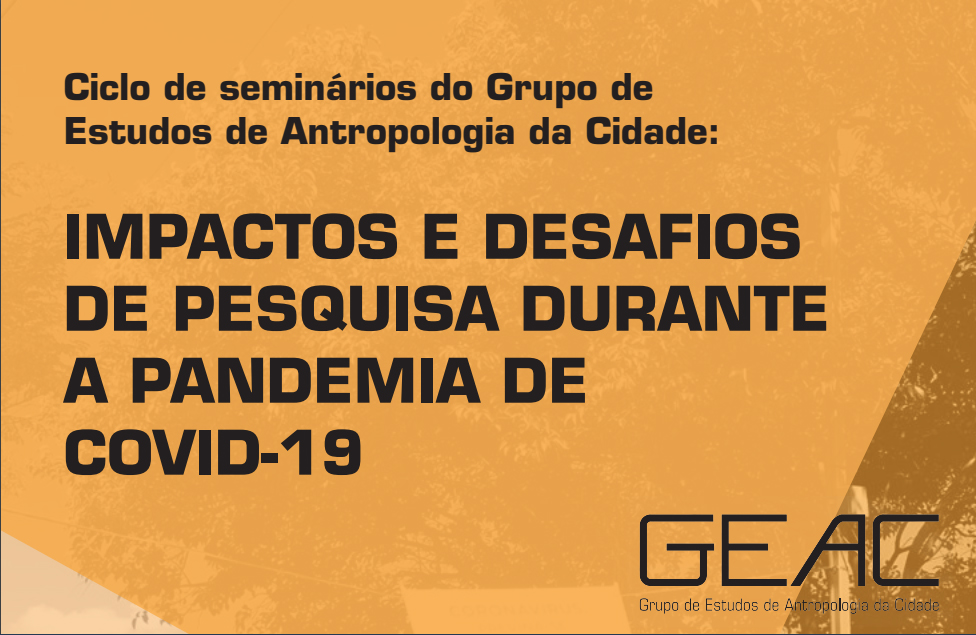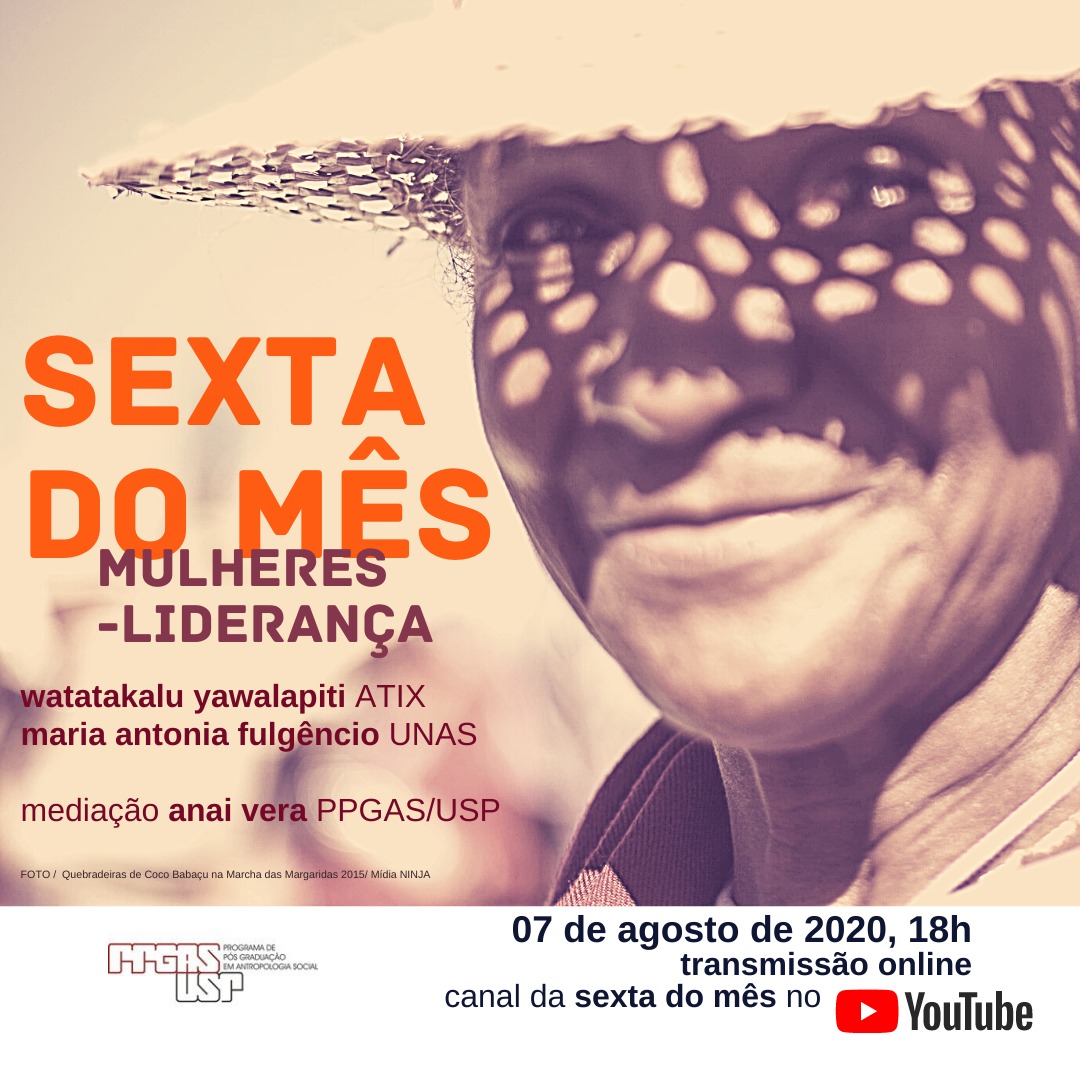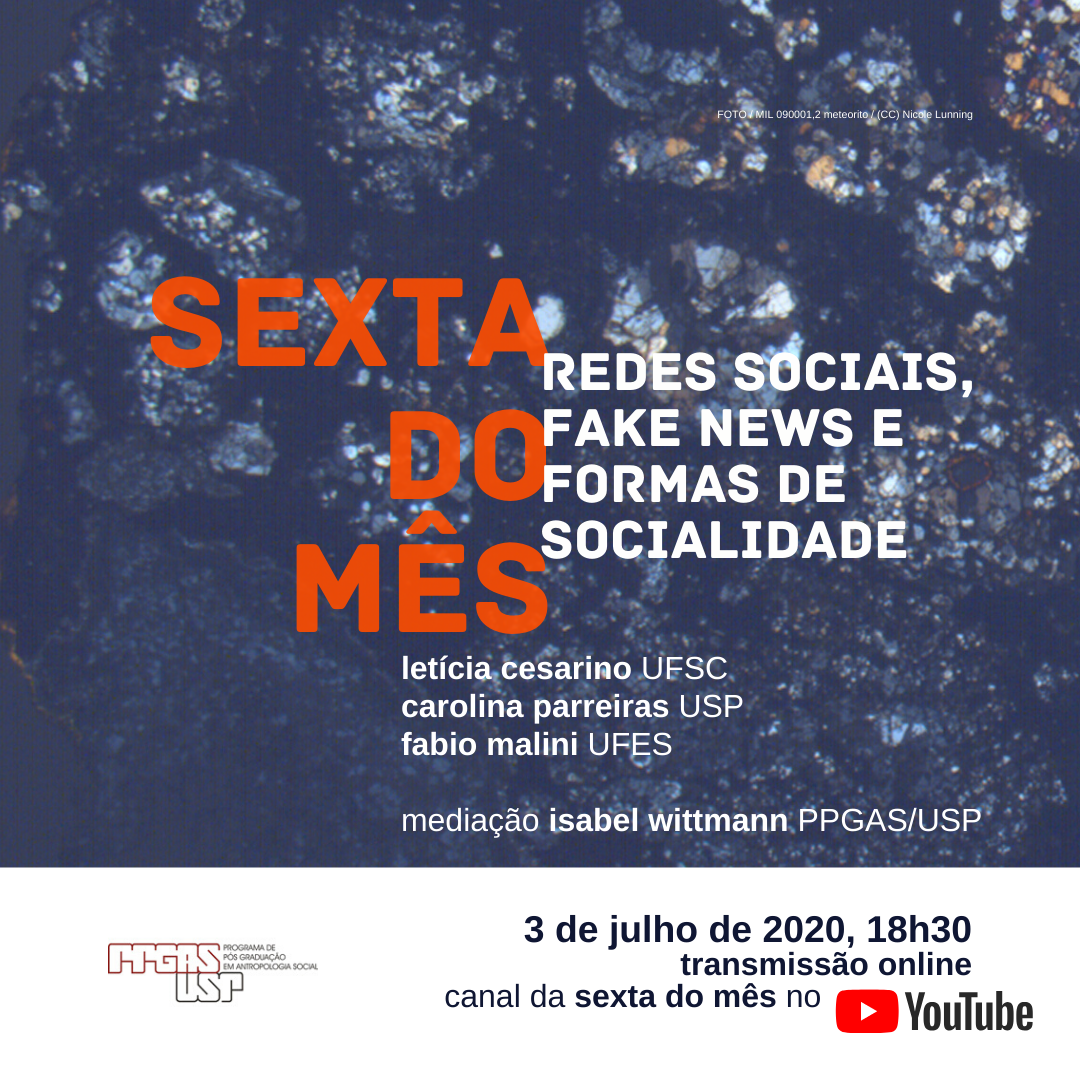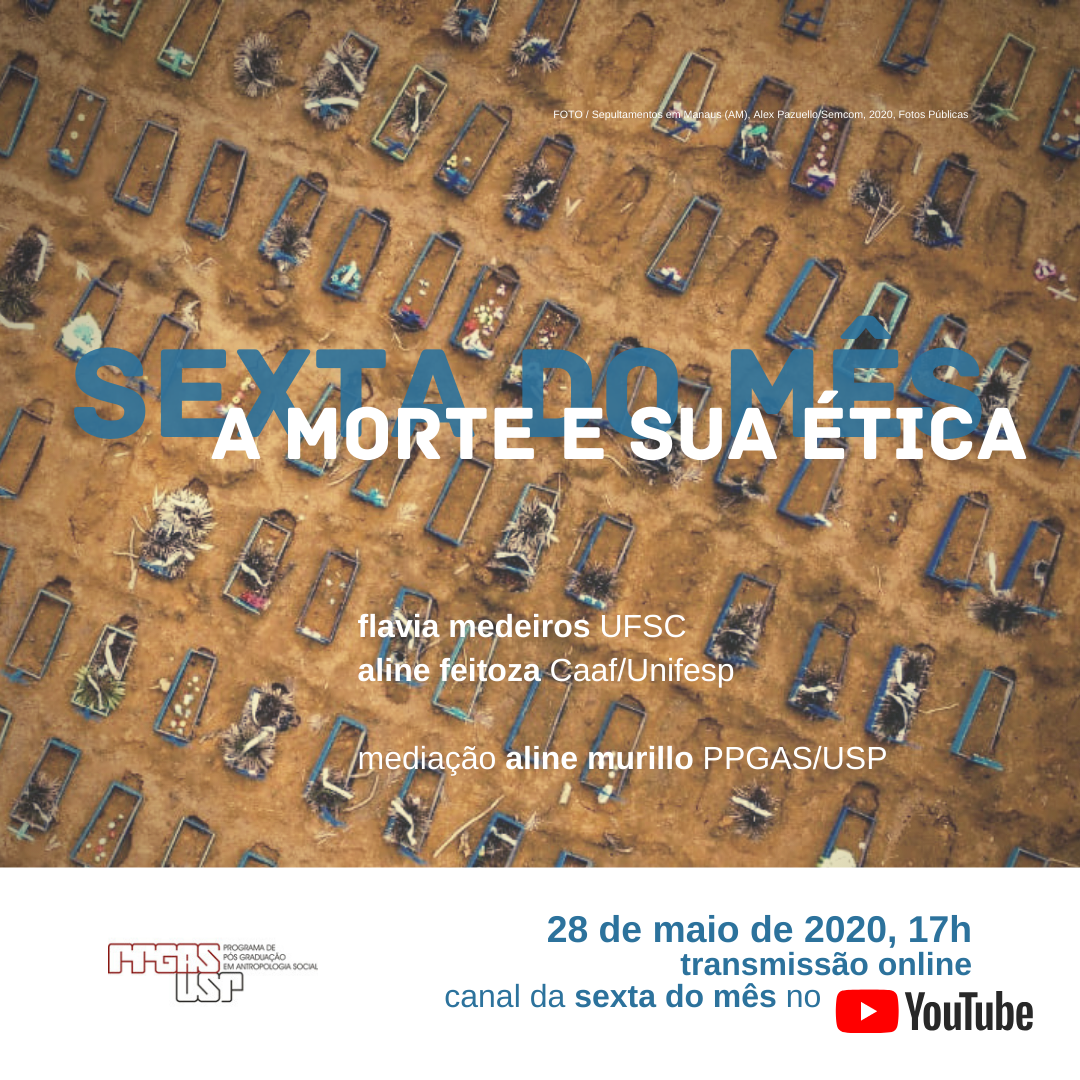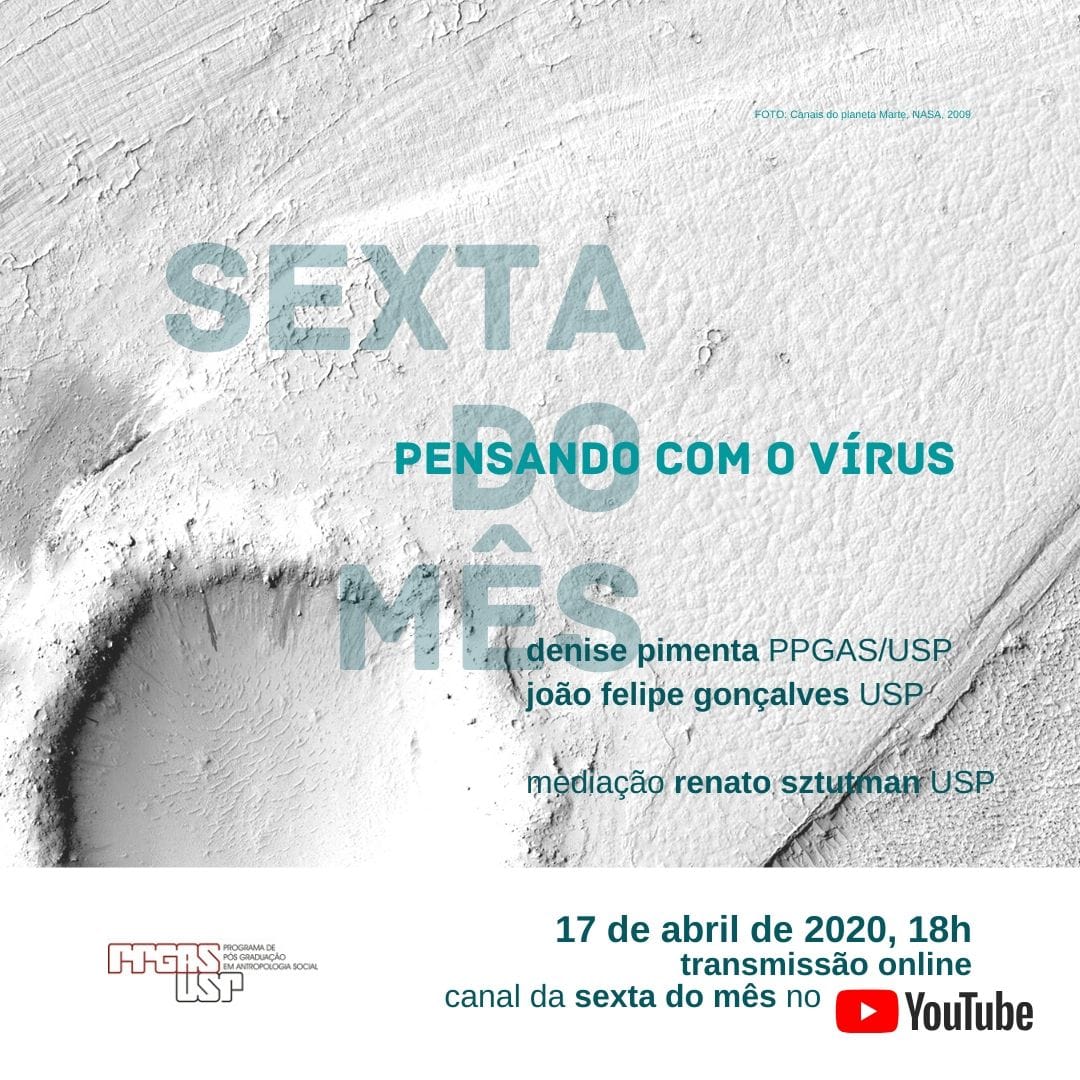History Events DA
Napedra has been a pioneer in performance studies in Brazilian anthropology. It organized events that mark the field of performance anthropology, such as the International Anthropology and Performance Meeting - EIAP (2011), the 1st National Anthropology and Performance Meeting - ENAP (2010), and the Meetings with Richard Schechner (2013). He proposed the first research forums and working groups in performance studies of the Brazilian Association of Anthropology (ABANNE 2003; RBA 2004, 2006, 2012) and the National Association of Graduate Studies and Research in Social Sciences (ANPOCS 2005, 2006, 2007 ). He organized research forums and work groups at the First Latin American Anthropology Congress (ALA 2005) and Mercosur Anthropology Meetings (RAM 2005, 2009). In 2009, he held the Colloquium of Napedra: Sounds, Noises and Poetics of Performance. From 2008 to 2013, she developed the thematic project Anthropology of Performance: Drama, Aesthetics and Ritual (06 / 53006-2), a period in which Regina Pólo Müller's participation stands out, as a principal researcher. The project resulted in 22 books, 81 articles, 82 book chapters, and 102 international presentations.
In recent years, more and more young people from the periphery have accessed higher education, and particularly public universities. Public education is seen as another frontier crossed by young people from the periphery, who take peripheral culture into universities. The route derives from a historic trajectory of mobilization and struggles in the urban peripheries for the realization of rights and confronting socio-spatial segregation, including the right to education, activist and culture, both imbricated to the right to the city.
This debate aims to broaden the debate on the possible associations and contradictions between the political forms of culture and access to public education from the periphery. This connection is permeated by contradictions and is not always balanced. If, on the one hand, there are the creation of popular courses, the dissemination of knowledge through networks of peripheral culture and the expansion of research on urban space from the peripheral context, on the other hand there is the difficulty of staying and prejudice rooted in sectors that are still elitist at the university. .
Are Brazilian universities open to the production of knowledge linked to the different types of knowledge that make up Brazilian sociocultural diversity and that of Native Peoples? When we talk about interculturality, do we deal with dialogues between knowledge, horizontal and decolonial interactions? Did academic productions overcome the ethnocidal, epsitemicidal and / or expropriation of knowledge positions? These are some of the concerns that we will try to ponder in this dialogue.
Casé Angatu - Santa Cruz State University and Graduate Program in Teaching and Ethnic Racial Relations at the Federal University of Southern Bahia (PPGER-UFSB), Monguetá mbaecuaba-eté: Indigenous Indigenous Knowledge & Academic Knowledge - Relevant Intercultural Dialogues? Casé Angatú
Joziléia Daniza Jagso Kaingang - Federal University of Santa Catarina
The ideals of more equitable and fair cities have historically mobilized social movements and academia to defend the guarantee of social rights for all, without any form of gender, ethnic, sexual and religious discrimination. These ideals centralize the guidelines for the right to the city in the face of structural Brazilian socio-spatial inequality. The pandemic of the new corona virus “covid 19” has broadly exposed Brazilian socio-spatial inequalities and widened them among the most disadvantaged segments. The majority of those affected by the covid 19 are informal workers, unemployed, homeless, living in precarious areas, both in the peripheries and in the center, and above all women and blacks historically inferior in Brazilian society.
In addition to this particularly adverse context in which we find ourselves - with the intensification of the widespread privatization agenda, extinction of rights and the upsurge in state violence that naturally accompanies them -, it has been operating through increasingly complex mechanisms, concealing reality and generalization of misinformation and confusion especially directed at the people from whom resistance should come.
The Cycle of Debates and Lectures “University in transformation: challenges and potential - Education, Research and Human Rights in the 21st century in an interdisciplinary perspective” begins on 10/15 (Thursday) at 4:30 pm.For about 2 months (from 10/15 to 12/18), more than 100 speakers will interact, in videoconferences broadcast on Youtube, with a wide group of people on social networks (Youtube, Instagram, Facebook and Twitter) and on the website of the Cycle (www.
Seminar cycle of the Anthropology Study Group of the City
Mondays, Wednesdays and Fridays at 19h from 8/26 to 9/04
live streams on GEAC's YouTube channel: www.linktr.ee/geac
Among the questions that emerge in the current pandemic, it is emphasized that it is possible to research, from an ethnographic point of view, facing the restrictions of various orders to face-to-face social interactions, given the necessary care to avoid the transmission of Covid -19. The present cycle of seminars seeks to dialogue with this reality, with an emphasis on the ongoing changes in urban life, through the approach on ongoing research by members of GEAC (in speech with other researchers), whose impacts resulting from the pandemic have led to both changes contextual, regarding the need for new investigative strategies.
with Maria Antonia Fulgêncio (UNAS) and Watatakalu Yawalapiti (ATIX)
mediation by Anai Vera (PPGAS / USP)
On the Friday of the month channel on youtube - https://bit.ly/sextadomes
with Letícia Cesarino (UFSC), Carolina Parreiras (USP) and Fábio Malini (UFES)
mediation: Isabel Wittmann (PPGAS-USP)
On the Friday of the month channel on youtube - https://bit.ly/sextadomes
with Flavia Medeiros (UFSC) and Aline Feitoza de Oliveira (Caaf-Unifesp)
mediation: Aline Murillo (PPGAS-USP)
Thursday, May 28, 2020, 5 pm
On the Friday of the month channel on youtube - bit.ly/2XuCu25
Death continues to pursue the humanities, as a certain future - expected, feared, or postponed -, also disturbing the social sciences and anthropology. In addition to its reflective aspect, which offers us questions about the meaning of existence, through death ethical, political, religious and socioeconomic problems are outlined, associated with health, public security, health policy, geopolitics and biosafety.
Like any art, the routing of death, of the dead and their remnants, whether at the Medical-Legal Institute of Rio de Janeiro, among the Yanomami Indians, or at the Working Group on the Clandestine Ditch of the Perus Cemetery, is always supported by certain ethical principles, specialized procedures, specific rites and meets certain collective values and objectives - to guarantee the transition between life and death, to reaffirm social collectivities and to ensure the continuity of the presence and, at times, to clarify the history.
with Denise Pimenta (PPGAS / USP) and João Felipe Gonçalves (USP)
mediation: Renato Sztutman (USP)
[live stream on Friday's YouTube channel]
https://www.youtube.com/channel/UC_7nMNIs862VNf2AgrJPPrg


